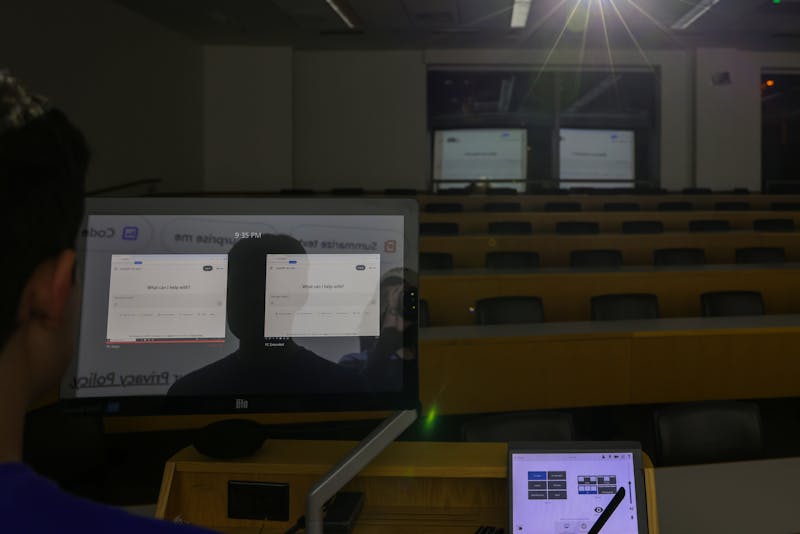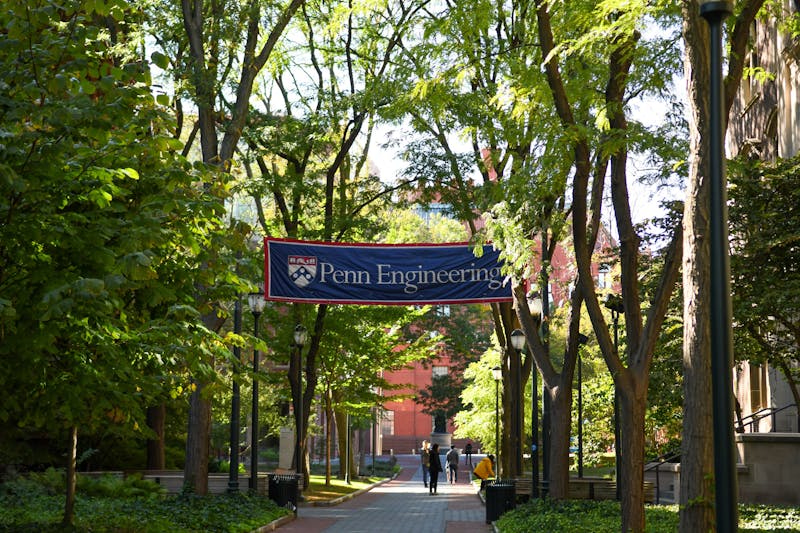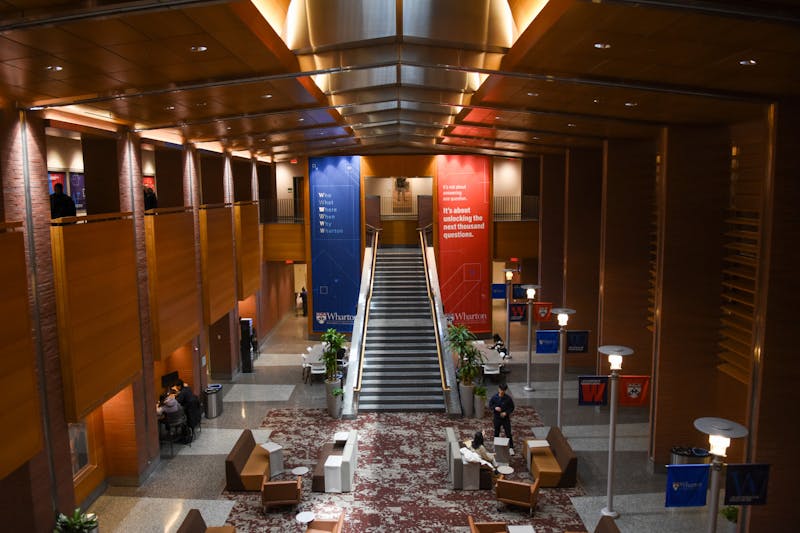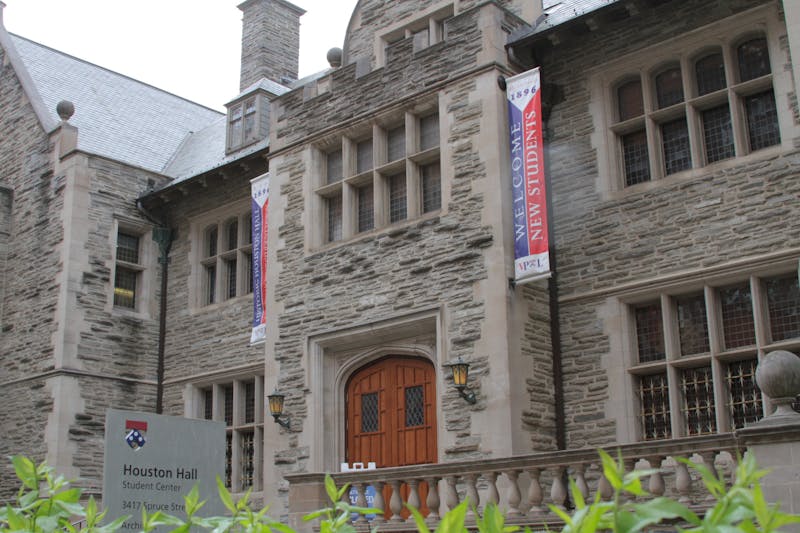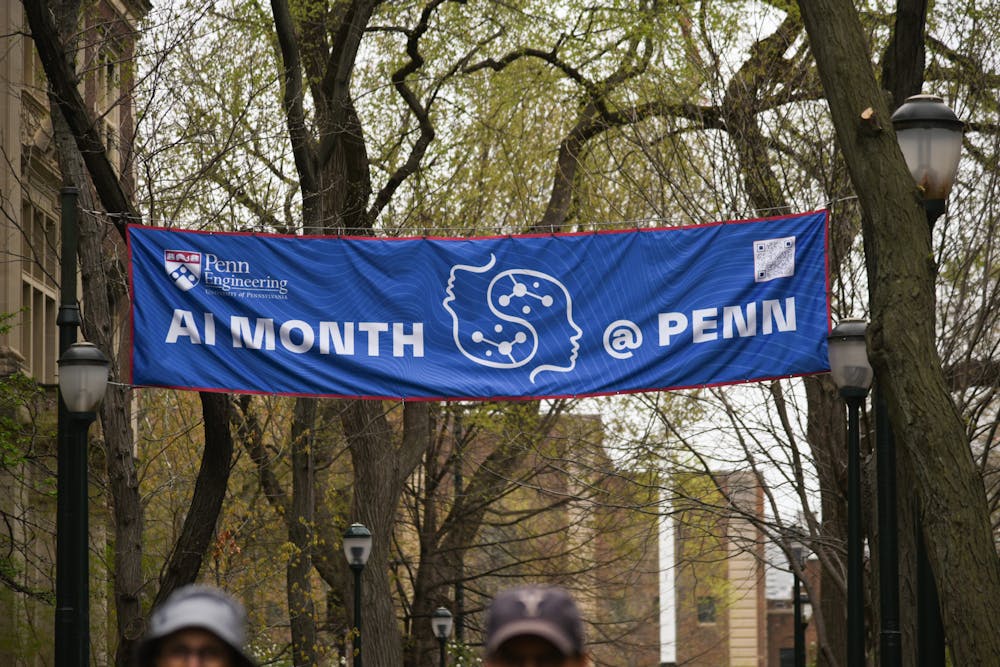
Yann LeCun, the chief artificial intelligence scientist at Meta, visited Penn last week for a fireside chat hosted by Computer and Information Science professor Michael Kearns.
Kearns, the National Center Professor of Management and Technology at the School of Engineering and Applied Science and founding director of The Warren Center for Network and Data Sciences, worked alongside LeCun in the 1990s at what was once AT&T Bell Laboratories. The event took place at Amy Gutmann Hall and attendees filled the auditorium, with some students needing to be seated in overflow rooms.
“There was a very remarkable group of young AI/ML researchers at Bell Labs that kind of all started our careers back in the 90s,” Kearns told The Daily Pennsylvanian. “Once we all went out to universities and tech companies everywhere, suddenly we had all these close friends and colleagues in a very diverse set of places.”
At the event, LeCun spoke on his experience at Bell Labs — which celebrates 100 years since its founding this year — specifically regarding the importance of sharing scientific research.
“[I learned] that when you do science, you publish your work because you need to teach the rest of the world about what you were doing, and also because the currency of your career as a scientist is intellectual impact, and that only comes from publications,” he said.
When LeCun joined Meta 11 years ago to create its first research lab, he also told Mark Zuckerberg, one of the founders of Meta — then known as Facebook — the importance of being transparent with research.
“If we do research, we have to do it in the open,” LeCun added.
When speaking on computer science pedagogy, LeCun said that some computer science departments were slow to pick up on machine learning. While traditional computer science focused on theory and systems, machine learning was seen as something more “peripheral.”
“Machine learning was this boutique subfield of AI, which at that time was discredited,” Kearns said when speaking about his own experience as a student entering graduate school in the 1980s. “I think that everybody who is from our generation who went into machine learning felt like an outsider for some period of time. The field was just an unusual hybrid of computer science, statistics, engineering, [and] a little bit of neuroscience.”
Despite the hybrid nature of machine learning, Kearns said that people who enter the field will still end up making original contributions.
LeCun also addressed concerns that some people have with AI, including with large language models. While some people have claimed that LLMs would be harmful due to their ability to generate disinformation through social media, LeCun said that he doesn’t see this happen within Meta.
“We see a flood of disinformation, but it is produced by humans … so it’s really a societal problem, not really a technological one at this point,” LeCun said.
LeCun also emphasized that you cannot eliminate bias from an AI system the same way you cannot eliminate bias from a newspaper. Instead, he said that society needs a wide diversity of AI assistants, giving people the choice of what biases an AI system will have.
“I can’t disagree with his prescription for making things better, which is open-source models, not being opaque, having things out in the open and letting people have a choice,” Kearns told the DP.
Students who attended the event appreciated the diversity of topics discussed.
“[The event was] a really interesting mix. You cover the history of AI from the very inception to the four decades that it spans,” College junior James Huang told the DP. “It’s very nice hearing how his career evolved, alongside the actual societal impact of [AI].”
College junior Tereza Okálová enjoyed how LeCun talked about the limitations of reinforcement learning models being used to present the physical world.
“That is very much a contention that the field of theoretical neuroscience, as well as linguistics, oftentimes have in terms of [how to] best represent how humans learn and create internal representations of the physical world,” Okálová said.
The fireside chat was a part of the 2025 AI Month at Penn, which is aimed at exploring “AI’s impact on human well-being” and focusing on “how AI is shaping health, society and quality of life, while addressing critical issues such as fairness and safe AI practices.”
The Daily Pennsylvanian is an independent, student-run newspaper. Please consider making a donation to support the coverage that shapes the University. Your generosity ensures a future of strong journalism at Penn.
Donate








